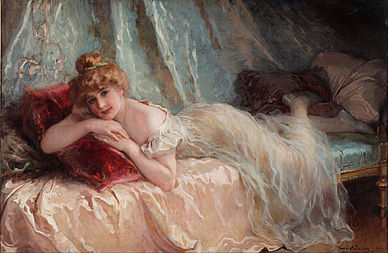| This article needs additional citations for verification. Please help improve this article by adding citations to reliable sources. Unsourced material may be challenged and removed. Find sources: "Idleness" – news · newspapers · books · scholar · JSTOR (February 2010) (Learn how and when to remove this message) |

Idleness is a lack of motion or energy. In describing a person, idle suggests having no labor: "idly passing the day".
In physics, an idle machine exerts no transfer of energy. When a vehicle is not in motion, an idling engine does no useful thermodynamic work. In computing, an idle processor or network circuit is not being used by any program, application, or message.
Cultural norms

Typically, when one describes a machine as idle, it is an objective statement regarding its current state. However, when used to describe a person, idle typically carries a negative connotation, with the assumption that the person is wasting their time by doing nothing of value.
Such a view is reflected in the proverb "an idle mind is the devil's workshop". Also, the popular phrase "killing time" refers to idleness and can be defined as spending time doing nothing in particular in order that time seems to pass more quickly. These interpretations of idleness are not universal – they are more typically associated with Western cultures. Idleness was considered a disorderly offence in England punishable as a summary offense.
Involuntary enforced idleness is the punishment used for lazy or slacking workers in zero-hour contracts. Paid time off, which was introduced in the 20th century as a trade unionist reform, is now absent from an increasing number of job arrangements both as a money-saving mechanism and so that only work pays and thus reinforcing the stigma against idleness and enabling nature's punishment of idleness in the form of destitution and starvation.
Analysis and interpretation
Philosopher Bertrand Russell published In Praise of Idleness and Other Essays in 1935, exploring the virtues of being idle in modern society.
Founded in 1993 by Tom Hodgkinson, the magazine The Idler is devoted to promoting the ethos of "idle living". Hodgkinson published How to Be Idle in 2005 (subsequently subtitled A Loafer's Manifesto in 2007), also aimed to improve the public perception of idling.
The Importance of Being Idle: A Little Book of Lazy Inspiration is a humorous self-help book published in August 2000. The book inspired the title of the 2005 chart-topping single by English rock band Oasis.
Mark Slouka published the essay "Quitting the Paint Factory: The Virtues of Idleness", hinting at a post-scarcity economy and linking conscious busyness with anti-democratic and fascist tendencies.
Idleness: A Philosophical Essay is a 2018 publication contending the idle state is one of true freedom.
See also
- Inert
- Laziness
- Leisure
- Loitering
- Refusal of work
- Soldiering
- Slow movement (culture)
- Work (disambiguation)
References
- "Another branch of ſummary proceedings is that before juſtices of the peace, in order to inflict divers petty pecuniary mulcts, and corporal penalties, denounced by act of parliament for many diſorderly offences; ſuch as common ſwearing, drunkenneſs, vagrancy, idleneſs, and a vaſt variety of others, for which I muſt refer the ſtudent to the juſtice-books formerly cited, and which uſed to be formerly puniſhed by the verdict of a jury in the court-leet." Commentaries on the Laws of England, Sir William Blackstone
- Slouka, Mark (2004) "Quitting the Paint Factory" Harper's Magazine, November 2004.
- Brian, O'Connor (2018) Idleness: A Philosophical Essay Princeton University Press
Further reading
- Jordan, Sarah (2003). Anxieties of Idleness: Idleness in Eighteenth-century British Literature and Culture. London: Anxieties of Idleness: Idleness in Eighteenth-century British Literature and Culture. ISBN 0838755232.
- Masterson, John (31 October 2004). "In praise of idleness". Irish Independent. Retrieved 1 January 2021.